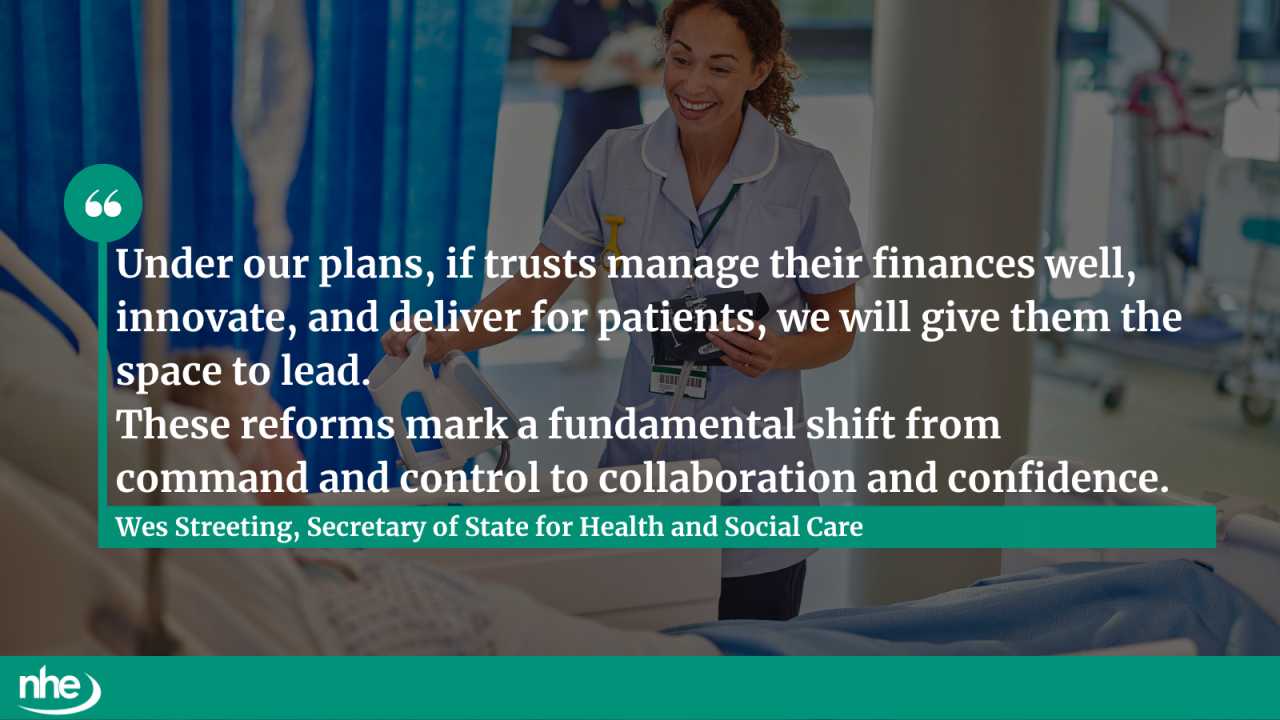Thousands of NHS patients are set to benefit from a major modernisation of the health service, as the government announces plans to give the best-performing hospitals and community health trusts greater independence.
Health and Social Care Secretary Wes Streeting has confirmed the introduction of “advanced foundation trust” status, ending decades of top-down control and rewarding the NHS’s strongest leaders with more freedom to make local decisions. This includes how services are organised and how money is spent, enabling care to be designed around local needs rather than dictated from Whitehall.
Key features of the new designation:
- Trusts with strong performance and sound finances can fast-track improvements, such as buying new scanners or upgrading wards.
- Reduced bureaucracy for investments under £100 million, cutting red tape that delays patient care improvements.
- Greater autonomy in return for commitments to reduce waiting times, expand community care, and tackle health inequalities.
Eight of the NHS’s highest-performing trusts have been nominated for assessment by an independent panel. Those approved will also need to demonstrate progress on the three big shifts of the 10-Year Health Plan, which will see a move towards prevention, transition from hospital to community care, and a shift to a more digital health service.
Some trusts may also take on Integrated Healthcare Organisation contracts, giving them control of local health budgets and responsibility for improving population health.
Health Secretary Wes Streeting said:
“Good leadership in the NHS has never mattered more.
“Under our plans, if trusts manage their finances well, innovate, and deliver for patients, we will give them the space to lead.
“These reforms mark a fundamental shift from command and control to collaboration and confidence.
“For the first time in years, the NHS can look forward with confidence rather than back in frustration.
“Because we’ve got a plan that’s not just ambitious and realistic – we’ve got a plan that is working, and that is why the NHS is on the road to recovery.”

This announcement forms part of wider NHS reforms to cut duplication, slash bureaucracy and reinvest billions into frontline care, ensuring patients experience faster, more personalised services.
Image credit: iStock



















